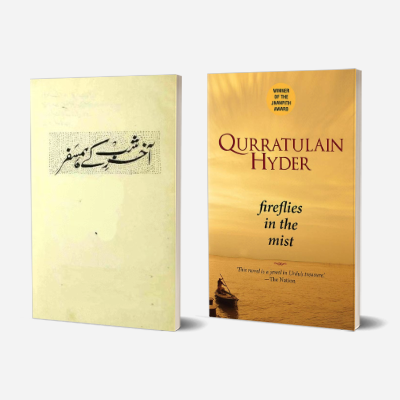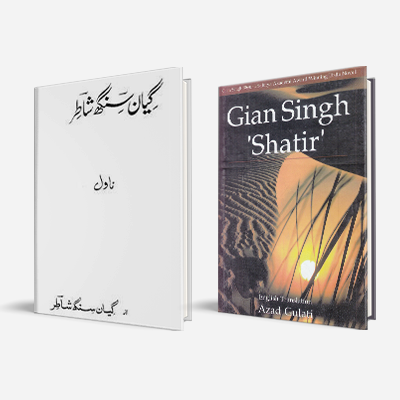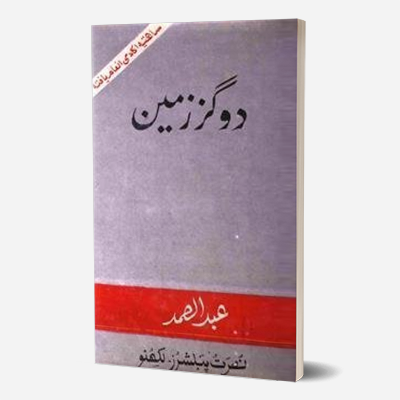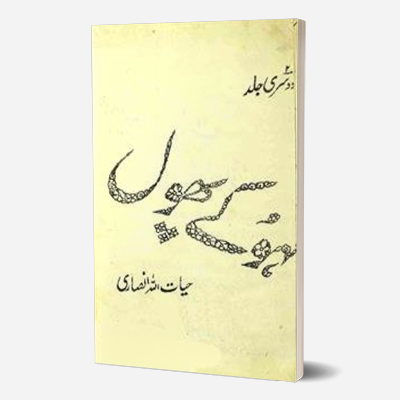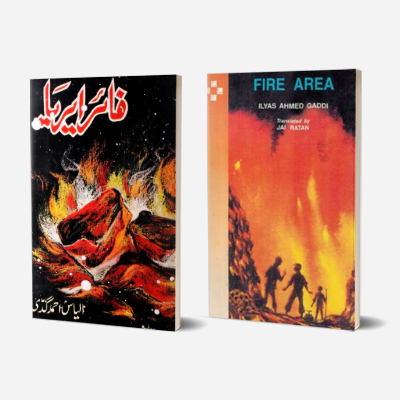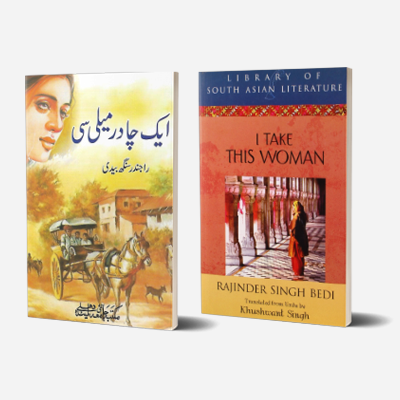Aakhir-e-Shab Ke Humsafar
By Qurratulain Haider
Translated into English as Fireflies in the Mist by the author
Fireflies follows the creation of modern-day Bangladesh—from Indian province, to Partition, to the emergence of statehood—as told through the impassioned voice of Deepali Sarkar and others around her who live through the turbulence. Hyder perceptively and majestically follows the trajectory of Sarkar’s life—from her secluded upbringing in Dhaka to becoming a socialist rebel, from her doomed love affair with Rehan Ahmed, a Muslim radical with Marxist inclinations to her ultimate transformation as a diasporic Bengali cosmopolitan—in the way that many of yesterday’s revolutionaries are slowly but surely ensnared within a net of class and luxury dangled in front of them. Hyder also explores the growth of tension between Bengal’s Hindus and Muslims who had once shared a culture and a history. History, says Hyder, is another name for humanity’s inability to learn its lesson. It received the Jnanpith Award in 1989.
About the Author
The Grande Dame of Urdu literature—Qurratulain Hyder was a novelist short story writer, academic and journalist. Known as Urdu’s Marquez, besides her oft-mentioned moniker ‘Ainee Apa’, Hyder began her literary career writing short-stories. She has also published six novels, novellas and a number of prolific translations. She received the 1967 Sahitya Akademi Award in Urdu for her short-story collection Patjhar Ki Awaz (The Sound of Falling Leaves) and the Sahitya Akademi Fellowship in 1994. She has also been honoured with the Padma Shri and the Padma Bhushan (2005).
Also read
Mere Bhi Sanam Khane
Translated into English as My Temples, Too by the author
Situated in the matrix of Partition, Independence, democracy—near simultaneous events that changed India irrevocably—Hyder’s novel examines the promise and disillusionment that came with the birth of two new nations, through the lives and deaths of the young citizens of the fabled city of Lucknow. Set in the 1940s, it tells the story of Rakshanda and her brother Peechu—children of privilege—and their friends Kiran, Vimal, Salim, Christabel. They are the ‘Gang’ of Lucknow; idealistic, nationalistic, liberal and rational. They meet in coffee houses, run a progressive magazine, fall in love, and dream of building a brave new world. But with the turbulence of Partition and Independence, the quiet rhythm of their lives is brutally disrupted. New animosities replace old loyalties, and the merry ‘Gang’ is torn apart as the old order begins to fragment.
Gian Singh ‘Shatir’
By Gian Singh Shatir
Translated into English by Azad Gulati
It is an autobiographical novel and a ruggedly realistic piece of work, marked by a raw charm and lucidity of its own. The novel is known for its disarming candidates, the starkness of creativity, gaminess of emotions and factual presentations of his life. The work is considered a unique contribution to Indian fiction in Urdu. It received the Sahitya Akademi Award in 1997.
About the Author
Poet and novelist, Gian Singh Shatir was born in Punjab in 1936. A mechanical engineer by training and profession, Shatir started writing in 1960. His published works include Chand Aur Roti, a book of poems and some works of fiction.
Do Gaz Zameen
By Abdus Samad
Do Gaz Zameen deals with the politics, communal violence, mass displacement and human suffering, as triggered by the partitions of the Indian subcontinent (first of India in 1947 and then the Indo-Pakistan War of 1971-1972 which led to the creation of Bangladesh) and depicts its devastating impact on the declining Muslim feudal family of Bihar Shareef, roughly from the 1920s to the 1970s. The novel is significant for its characterisation, its lucidity of style and portrayal of problems. For its perception of cultural identity as shaped by emotional, intellectual and historical compulsions, this novel is regarded as an outstanding contribution to Urdu literature. It received the Sahitya Akademi Award in 1990 and has been translated into 21 languages.
About the Author
Abdus Samad is known less as a teacher of political science and more as a famous Urdu fiction writer. Starting his literary career with short story writing, he later began writing novels. All five of his novels are accounts of the politics of twentieth-century Bihar.
Also read
Khwabon Ka Savera
Translated into English as Dawn of Dreams by Ms. Mehr Afshan Farooqi
The collapse of the Zamindari system in free India pushes Khan Bhadur Zamiruddin’s aristocratic legal heirs to the brink of penury. Set in the post-Partition period, this novel highlights the precarious situation when patriotism and idealism fail to inspire a power-hungry, materialistic society in which families are fragmented by an inheritance of suffering. Samad’s novel, like almost all other fictionalized accounts of the partition, disrupts the grand historical narratives and locates itself in contradiction to the communalized narrations of the formation of Pakistan, first offered by the Muslim League and then reinforced by various Hindu fundamentalist organizations.
